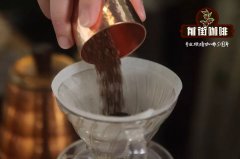How about Rwandan Women's Cooperative Fair Trade Coffee_Introduction to Rwandan Coffee Bean Cultivation

Professional coffee knowledge exchange more coffee bean information please follow the coffee workshop (Wechat official account cafe_style)
Raw bean source:
Origin: women's Cooperative of Rwanda
Raw bean variety: Bourbon
Planting altitude: 1500Murray 2000m
Raw bean treatment: Wet Process washing
Bakability: shallow baking, moderate baking
Packing specification: 250g
Price: 128 yuan
Rwanda coffee beans
Rwanda has always been given good coffee growing conditions: high altitude, volcanic soil, rich sunshine and Cabernet Sauvignon. Rwanda is also known as the "country of a thousand mountains" because many coffee trees are planted on mountains between 1700 and 2000 meters above sea level. Rwandan coffee is a world-class enjoyment, which is not only more balanced than Kenyan coffee, but also can compete with Chinese and American coffee. Generally speaking, Rwandan coffee has the sweetness of fruit, the fragrance of flowers and the aftertaste of black tea. The mode of operation of coffee production lines often depends on the country of production, while coffee in Rwanda is produced entirely by small farmers rather than large-scale enterprises. Compared with farms in Brazil, even small ones reach 20 hectares, while the 0.1-0.2 hectares in Rwanda are negligible.
The farmers here will first pick the coffee beans from the coffee trees with their hands, then send them to the processing desk, and be trampled by the barefoot, singing farmers. These coffees are sweet with a clear taste of lemon and a faint taste of berries and chocolate.
For these developing countries, when the demand for boutique coffee becomes more and more popular, coffee will naturally become one of the main development directions of the country, in order to make continuous progress and be recognized by the international market.
When the coffee beans are separated from the fruit, the brown farmers will sort the beans one by one with rake and water, and then bask in the sun. As the coffee beans are sensitive to air humidity, whenever the breeze blows suddenly, the farmer will quickly cover them with a tarp.
END
Important Notice :
前街咖啡 FrontStreet Coffee has moved to new addredd:
FrontStreet Coffee Address: 315,Donghua East Road,GuangZhou
Tel:020 38364473
- Prev

Copyright © 2018 - 2019 www.rwanda.com All Rights Reserved.
Coffee Workshop (Weixin Official Accounts cafe_style) Cocatut is a cooperative in Tumba town and is located in the mountainous Rulindo district, north of Rwanda at 1820 Michael, this lodge forms coffee in the hills of 2000+ Michael. Cocatu is one of these cooperatives that are organized to survive.
- Next

2018 fair trade fair trade small white flavored coffee bourbon bean hand-brewing proposal of Rwanda Kopeck Cooperative
Professional coffee knowledge exchange more coffee bean information please follow Coffee Workshop (Wechat official account cafe_style) RWANDA FAIR TRADE ORGANIC COOPAC BOURBON LOTS 2018 Rwanda Coffee Corpec Cooperative Fair Trade Organic bourbon Micro Coffee White Neroli, soft acidity, Juice Origin: The Rubavu and the Rutsiro di
Related
- Detailed explanation of Jadeite planting Land in Panamanian Jadeite Manor introduction to the grading system of Jadeite competitive bidding, Red bid, Green bid and Rose Summer
- Story of Coffee planting in Brenka region of Costa Rica Stonehenge Manor anaerobic heavy honey treatment of flavor mouth
- What's on the barrel of Blue Mountain Coffee beans?
- Can American coffee also pull flowers? How to use hot American style to pull out a good-looking pattern?
- Can you make a cold extract with coffee beans? What is the right proportion for cold-extracted coffee formula?
- Indonesian PWN Gold Mandrine Coffee Origin Features Flavor How to Chong? Mandolin coffee is American.
- A brief introduction to the flavor characteristics of Brazilian yellow bourbon coffee beans
- What is the effect of different water quality on the flavor of cold-extracted coffee? What kind of water is best for brewing coffee?
- Why do you think of Rose Summer whenever you mention Panamanian coffee?
- Introduction to the characteristics of authentic blue mountain coffee bean producing areas? What is the CIB Coffee Authority in Jamaica?

